2013.7.23—The second day of the SWU Summer Program was focused on Japanese traditional activities.
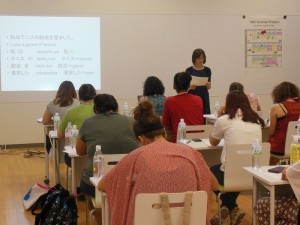
In the morning, Nishikawa-sensei, a professor in Showa’s department of Japanese Language and Literature, gave the students instruction in the history of the Japanese language.
Her lecture traced the origins of the Japanese writing system, illustrating how the characters borrowed from China gradually changed to become the two syllabary systems used today, the smooth, curved hiragana and the more angular katakana. Nishikawa-sensei’s lecture also illuminated the logic behind some of the Chinese characters (kanji) still used in Japanese today, showing how these seemingly abstract figures actually resemble their meaning.
Finally, Nishikawa-sensei gave students a brief pronunciation lesson and took them through some useful Japanese phrases.
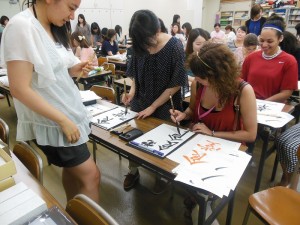
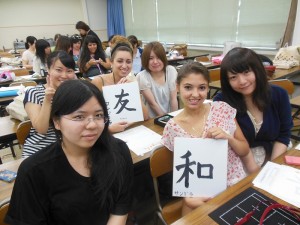
After the Japanese lesson, students were treated to a calligraphy class, led by Itabashi-sensei, a professor from department of Japanese Language and Literature. Students learned about different styles of calligraphy, the proper way to hold a brush, and the handful of basic strokes that make up every character. Each student got to make their own piece of calligraphy artwork, painted on a gold-rimmed board and ready to be framed.
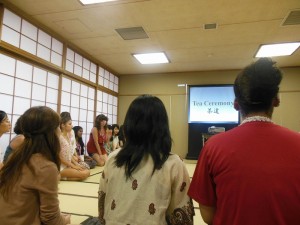
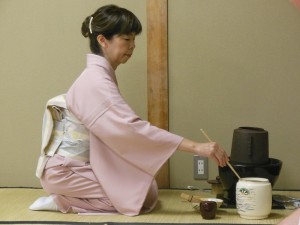
The final event of the day was tea ceremony.
Before the ceremony itself, a member of the CIE staff who had been practicing the art for over two decades gave a lecture on the history and significance of tea ceremony. While it originated in China as a game to try to identify the provenance of different teas, he explained, the Japanese tea ceremony places far less emphasis than its predecessor on the tea itself and far more on the making of the tea, with the goal of capturing a fleeting moment in time. As Japanese tea ceremony has remained largely unchanged since its beginnings almost half a century ago, practicing it provides a window into history.
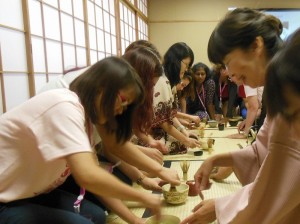
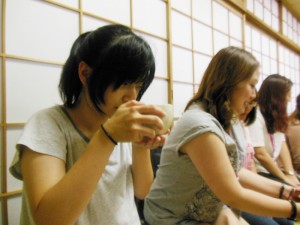
After this lecture, students watched a tea ceremony demonstration, then were given beautiful traditional sweets. Finally, they got the chance to prepare and drink their own tea.
